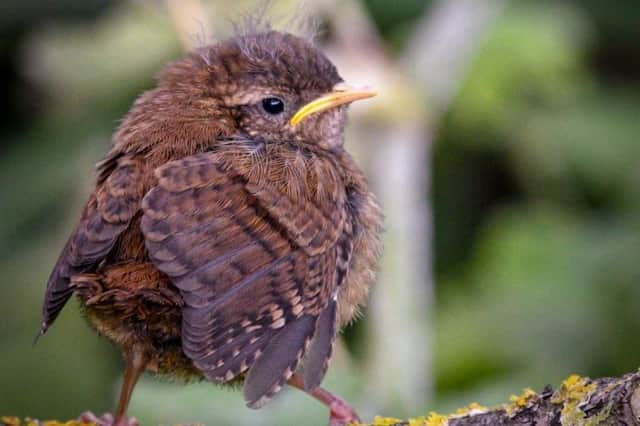RSPB advice on what to do if you find a baby bird


June brings with it an abundance of newly fledged birds, so keep your eyes peeled when you venture into your garden or nearby wildlife hotspots, as you may spot the next generation taking their tentative first hops, skips and flaps towards independence.
At this time of year, it’s common to see young birds clumsily hopping around on the ground, perhaps taking shelter within hedgerows or shrubs, as they get to grips with the big wide world. Sometimes, people mistakenly think that they have been abandoned or need human help. But in most cases, there is no need to step-in.
Advertisement
Hide AdAdvertisement
Hide AdThe young of most familiar garden birds such as blackbirds, robins and house sparrows, fledge once they are fully feathered, but before they can fully fly. These fledglings spend some time on the ground whilst they finish growing their flight feathers, practise using their wings and are fed by their parents who are rarely far away.
It might be tempting to intervene but removing a healthy fledgling from the wild reduces its chances of long-term survival. Parent birds are much more skilled at looking after their offspring than we humans will ever be.
There are some exceptions when a helping hand might be needed.
Nestlings: if a baby bird is unfeathered or covered in fluffy down, it’s a nestling and has left the nest too early.
Advertisement
Hide AdAdvertisement
Hide AdOccasionally it’s possible to put them back in their nest, but only do so if you are sure which nest the chick came from and it’s safe to do so.
If a healthy chick can’t be returned to its nest, it will be dependent on humans for survival and should be passed on to an expert rehabilitator as soon as possible.
Immediate Danger: If the baby bird is in the middle of a busy path or road, gently place the bird somewhere safe close by such as under a hedge. It’s important not to move it too far – otherwise the parents may not be able to find it to care for it.
Injury: If a young bird has an injury contact a local vet or a wildlife rehabilitator. As a wildlife conservation charity, RSPB NI doesn’t have the facilities or expertise to treat injured birds.
There is a great online resource at helpwildlife.co.uk which lists local rescue organisations who can help.
To learn more about the nature on your doorstep go to: rspb.org.uk
Comment Guidelines
National World encourages reader discussion on our stories. User feedback, insights and back-and-forth exchanges add a rich layer of context to reporting. Please review our Community Guidelines before commenting.